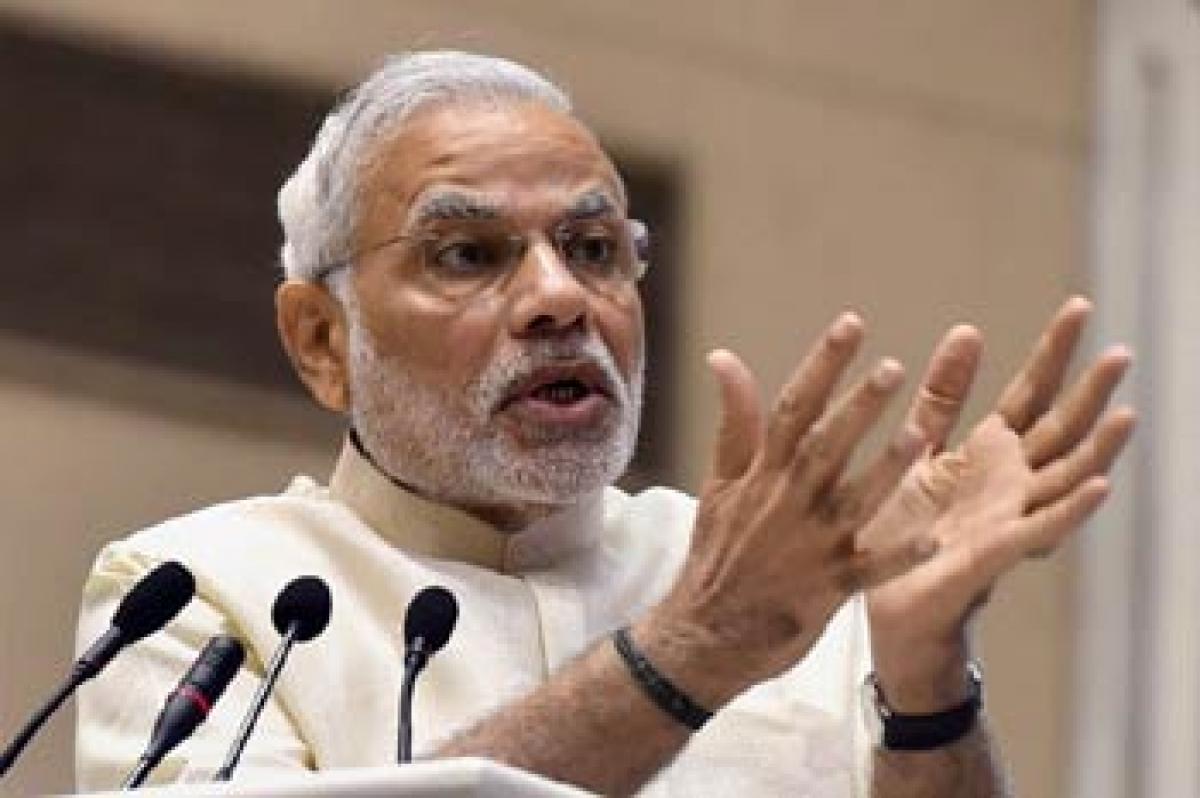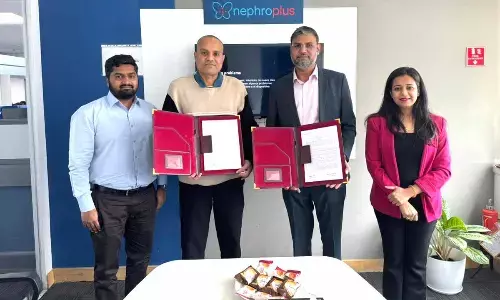Promises don’t translate into good governance

The Prime Minister recently announced a drought action plan to fight acute famine across the country coupled with severe water scarcity aggravating the crisis, especially in Western and Northern India More intriguing is that even as announcements and promises are being made, very little has actually been accomplished at the grass-roots level wherein villagers remain in deep distress.
The NDA government slashed funds for rural sector schemes even after declaring 246 districts in ten States drought hit in 2015-16. It even reduced funds for rural water supply from Rs 9,700 crore in 2013-14 to Rs 5,000 crore in the current fiscal
The Prime Minister recently announced a drought action plan to fight acute famine across the country coupled with severe water scarcity aggravating the crisis, especially in Western and Northern India More intriguing is that even as announcements and promises are being made, very little has actually been accomplished at the grass-roots level wherein villagers remain in deep distress.
Remember, at the beginning of its tenure, the NDA government talked of bringing back black money stashed in foreign banks to the country to partly solve the resource crunch facing the economy. But no initiative in this direction has been made till date even as the government remains silent on this matter.
In the mid-day meal scheme the HRD Ministry owed States Rs 560 crores for 2015-16 as the allocation that year was only Rs 9000 crore compared to Rs 13,000 crores the previous year. This is not all. The Ministry owes money to six States – Rajasthan, Madhya Pradesh, Uttar Pradesh, West Bengal, Jammu & Kashmir and Jharkhand which were not paid the second installment of the mid-day meal scheme in the last financial year.
Besides, even this year the allocation of Rs 9,700 crore will definitely be inadequate by over Rs 3,000 crore more due to drought and water scarcity prevailing in many States. Additionally, under pressure from the Supreme Court, the government announced release of Rs 12,930 crore to States to take care of the job scheme backlog for 2015-16.
Notwithstanding, the Union Rural Development Minister Birendra Singh’s assertion that the previous fiscal had seen the highest MGNREGS expenditure at Rs 41,371 crore since inception, how is this year’s allocation of Rs 38,500 crore being considered justified? True, while implementation of reforms in making the scheme more-oriented to combat agrarian distress especially in 10 States is welcome, the resources allocated for the plan looks quite meagre.
More so, due to the backlog payment from the current year’s allocation. Add to this is the government’s recent decision to extend the entitlement from 100 to 150 days to households in drought-affected regions. Arguably, just imagine how much money would be necessary if last year’s expenditure was above Rs 41,000 crore?
It is a no-brainer that water scarcity has been increasing due to virtually no rainfall in the first four months of 2016. In the current fiscal, States have proposed to construct 8.82 lakh farm ponds and increase the irrigation potential under MGNREGS. Here again the question arises how with such relatively low allocation the scheme would cater to the increased activities?
Meanwhile, the Congress has alleged that the NDA Government slashed funds for rural sector schemes even after declaring 246 districts in ten States drought hit in 2015-16, wherein the situation was particularly bad in Maharashtra, Jharkhand, Odisha, Telengana, Karnataka, Madhya Pradesh, Andhra Pradesh and Chhattisgarh.
It further accused the Modi government of reducing funds for rural water supply from Rs 9,700 crore in 2013-14 to Rs 5,000 crore in the current year. However, it was interesting to hear Prime Minister Modi underscoring in his election campaign in poll-bound States, that just modernizing cities would not help as the majority of the country’s population lived and worked in rural areas. Consequently, a dramatic improvement in their livelihood is necessary.
Towards that end he mentioned various initiatives and schemes launched by his government. But unless there is strict monitoring and adequate resources are made available, the success of these schemes remains only in paper. Clearly, only talking about development initiatives and glorifying a few things that a government has done is not enough. There has to be statistical evaluation of the work done by an administration in its five-year tenure and should be available on the net for public viewing.
By Dhurjati Mukherjee
















